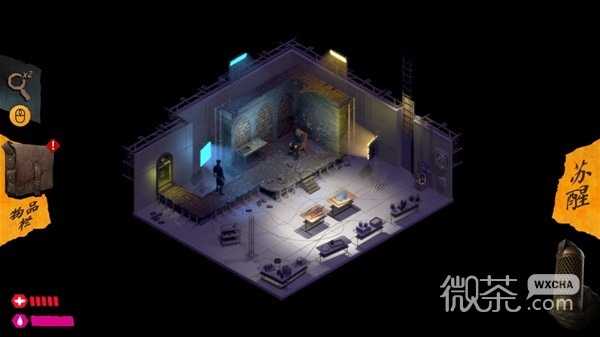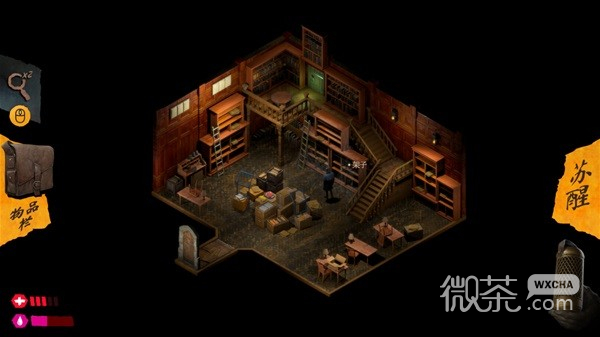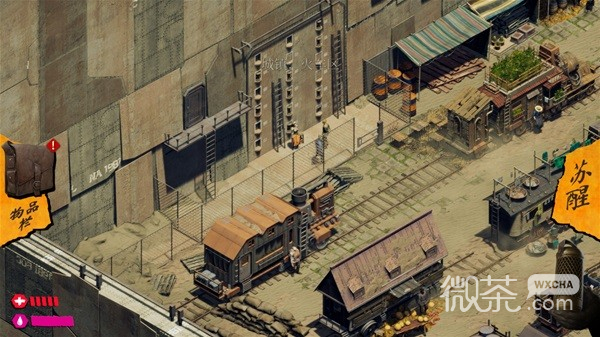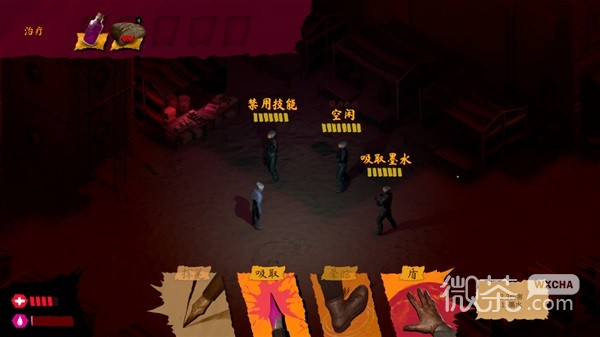Where can I find an introduction to the plot setting and gameplay analysis of "Book Walker"? I believe that many netizens have this kind of trouble. It’s very troublesome if others keep talking about it but you don’t know it. For this reason, the editor has compiled and shared the relevant strategy content below to help you easily solve this trouble. Come and take a look. Not what you need!
"Book Walker" builds a world view around books: not only that people can enter the world in the book, but also some extensions around this setting: for example, the protagonist Etienne broke the relevant laws at the beginning. He was sentenced to 30 years of "literary shackles" (I won't spoil what exactly he committed here, but it is quite fantasy and quite consistent with the setting). In order to avoid punishment, he was forced to start working illegally——

Enter the world of the book to steal items designated by customers: from the alchemist's potion of immortality, to King Arthur's sword in the stone, and Thor's hammer... The bossy customer is Etienne's escape from prison. The only hope for disaster, but it is obviously not a good thing. And as his agent, what Etienne does in the book obviously does not comply with normal moral standards. However, the "evil deeds" in the world in the book , do we need to accept the torture of realistic moral standards?
Level style: Like a monster without dice and turn settings
However, in terms of how to present the imagination of the world in the book, the performance of this work can only be regarded as mediocre. The first book starts in a prison cell, and the goal is to steal the elixir of immortality prepared by the alchemist; the second book is The search for Mjolnir in a machine shop, the third book is about the search for the wand in a Harry Potter-style wizarding school; the fourth book is about the search for the Sword in the Stone in a spaceship...


Just looking at these story descriptions is quite interesting, and the settings of the scenes themselves also have some fun and cold humor. But what books need is a complete story that moves forward. The advancement of "Book Walker" is only reflected in verbal expressions such as "He is going to escape to page XX" and "What did XX do on page XX", which is completely It does not show the feeling of "roaming in a book". Instead, it is basically an "escape room" style interactive puzzle that focuses on a fragmented time - the goal is very clear, to constantly go to new spaces, and the means are also very clear. To complete the experiment with interactive content, it is like a Zhiguai without dice and turn settings (a domestic game copied from the board game "The Legend of Weird Town").


In addition, in most of the stories, it feels like the fantasy of adventure in the "book world" is not reflected at all. If you want to give a positive example, it would be "Alice in Wonderland" or "The Wizard of Oz"? Even though these two works will create obvious "unreality" in terms of time and space connections (such as rabbit holes), the problem with "The Book Walker" is that the world in the book is still completely "realistic" and follows the rules of the real world. , even if you need to smash something in the book, you can go to the real world to borrow a sledgehammer from a neighbor, or borrow a fire extinguisher to put out a fire, etc.*.
*BTW, compared to the overly realistic book world, the real world has a strong sense of weirdness, with cramped and dim spaces, vigilant and hostile neighbors, and no links to meet people. When ordering, delivering or borrowing items, you just leave your items and leave, which gives it a wonderfully surreal feeling.


However, the fifth book enters a story written by the author himself, involving a time switch in a fixed mansion - the future can discover clues from the past, and the past can affect the future, which is somewhat interesting. In the sixth book, taking a train to a weird train city is relatively interesting. However, judging from the overall size of the game and the average level design, "Book Walker" can only be regarded as mediocre.
Interactive mechanism: simple puzzle solving and turn-based combat
Also similar to Stranger, this game also contains a simple turn-based battle, which is quite lame. The basic functions are attack (2-3 points of damage consumes 15 ink), defense (2 points of shield consumes 15 ink), Stun (1 point of damage consumes 30 ink), Drain (1 point of damage gets 30 ink) - why are they so lame? For example, if you are stunned, it only lasts for 1 round, which means you will be stunned all the time unless you take drugs. In fact, it is meaningless. .

If the enemy's AI has skills, it's better, and it will attack alternate skills (such as locking your skills or absorbing your ink). If the enemy's AI keeps attacking, then in fact you have only one way out: exchange blood.

Then you can pick up 3 types of items in the game: the parts can be synthesized into tools - crowbars, lock picks and tweezers to destroy the container. 99% of the damage is easy because it contains parts and decomposable items. Decomposable items can be decomposed into 100 ink + One bottle can be used to synthesize a bottle of blue medicine. The only blood medicines are apples (recovering 1 health) and moldy bread (recovering 2 blood). The fourth book, The Sword in the Stone, has a medical kit that recovers 5 blood (maximum 5 blood), but it is basically Not used. Then the final chapter is basically a painful battle, you can choose one of three imba skills, and you can be resurrected infinitely, which is equivalent to showing you a plot.

Then, the puzzle solving of the game is basically on the level of Baby Bus. I almost finished the game without any problems, especially after I just finished playing "Brogg the Crocodile Detective". The design gap is obvious when compared.